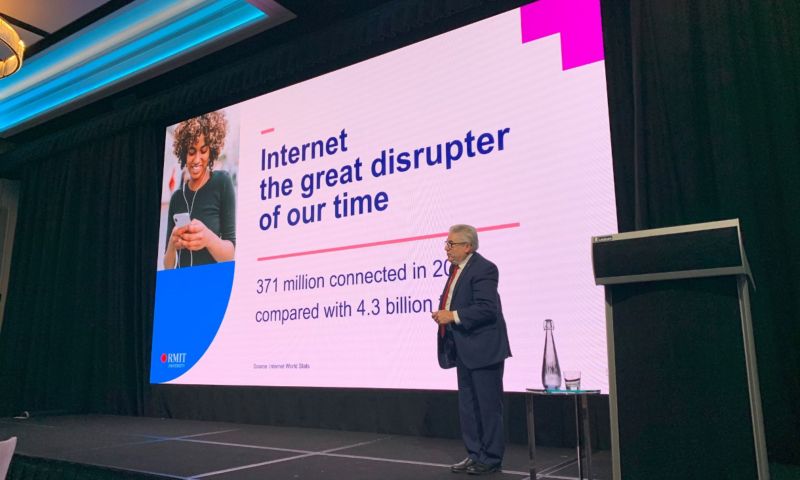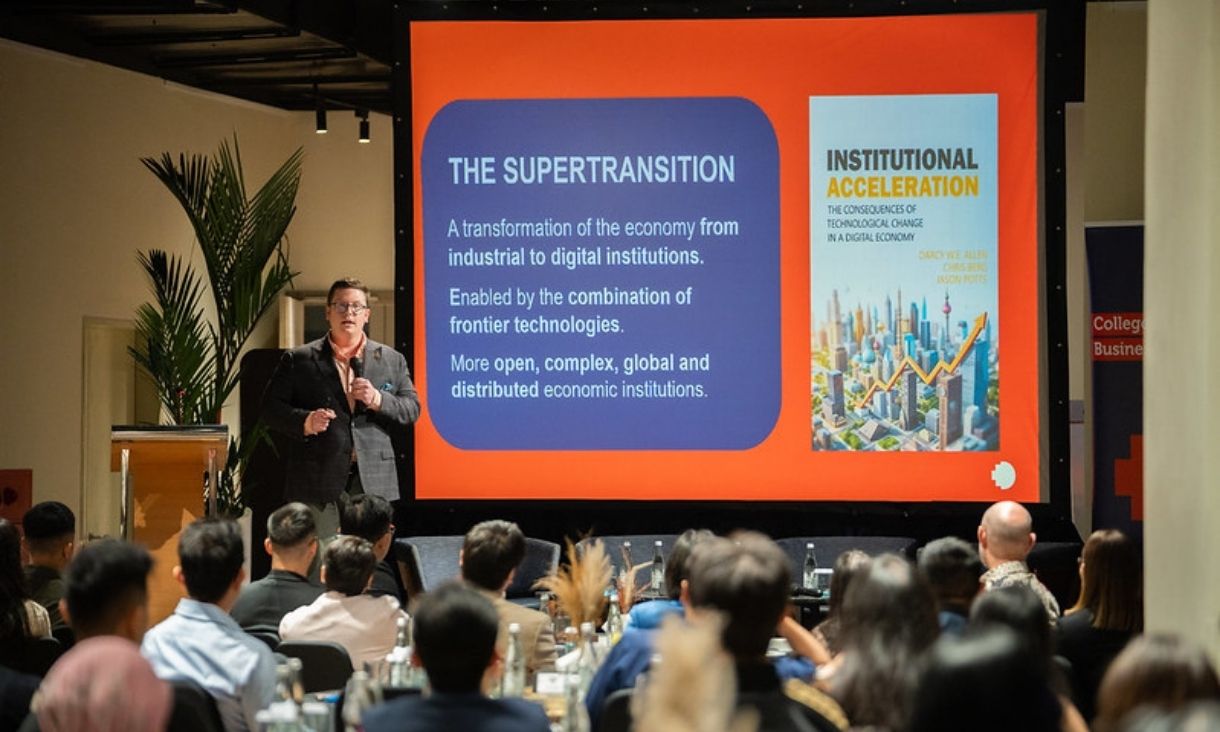In Vietnam, RMIT has two thriving campuses and a language centre with more than 7,000 students and an alumni cohort of more than 14,000.
“We make a genuine contribution in Vietnam, and the fact that 93% of RMIT Vietnam graduates secure a full-time job within four months of completing their degree speaks volumes for the impact of our programs.
“And as workforce needs within Vietnam change at pace, RMIT brings experience to bear as a humble partner, teacher and coach,” Martin said.
Aviation was one example of where the University was helping Vietnam meet its future demand for air travel with trained cadets.
RMIT is working in partnership with Vietnam’s airline industry to assist cadets to be work-ready through its state-of-the-art flight training facilities, providing them with a pool of graduate cadets.
The University’s reach and impact as a global university extends far beyond Vietnam, with nearly 6,000 RMIT students at the Singapore Institute of Management and close to 3,000 students studying at RMIT partner institutions in Singapore, mainland China, Hong Kong, Indonesia and Sri Lanka.
“We bring our Australian spirit, we bring the acquired knowledge of our European research and industry collaboration centre and the insight and connection from our education partnerships across our own region,” Martin said.
The ABAC meeting was hosted by RMIT’s APEC Study Centre – a centre focused on championing Australia’s priorities across the Asia Pacific, while influencing better economic outcomes for all people working and living in the region.
ABAC was created by APEC Leaders in 1995 to be the primary voice of business in APEC. Each economy has three members who are appointed by their respective Leaders. They meet four times a year in preparation for the presentation of their recommendations to the Leaders in a dialogue that is a key event in the annual Leaders Meeting.
This year, under Malaysia’s leadership ABAC is pursuing a work program under the theme “Integration. Innovation. Inclusion.” to respond to the challenge of maintaining the economic vitality of the Asia-Pacific Region and ensure it benefits all.
Story by: Elle Spring





